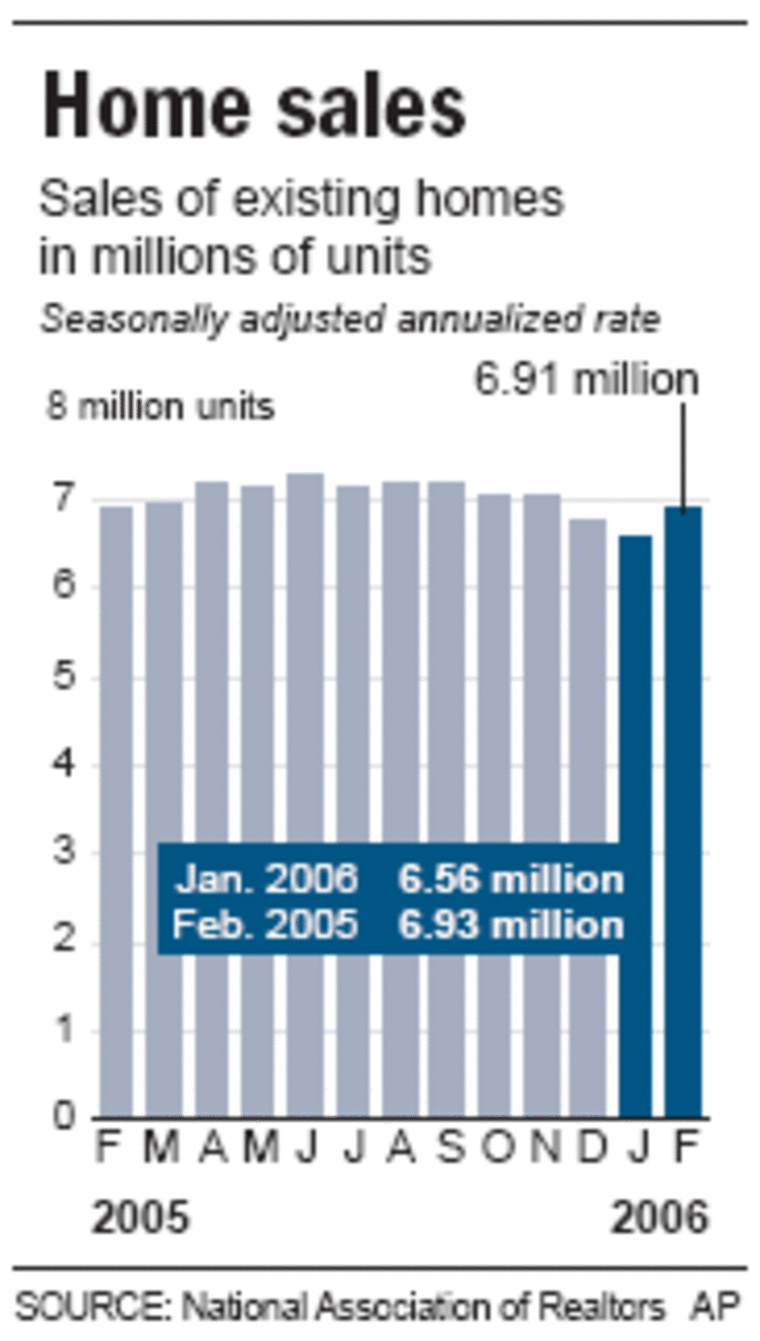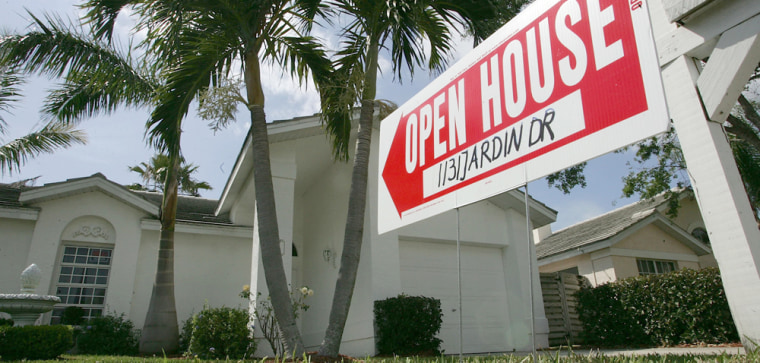Sales of existing homes unexpectedly rose last month as a warmer than usual winter boosted demand in many parts of the country, but a slack demand in some areas produced what one analyst called a “tale of two cities.”
The National Association of Realtors reported Thursday that that sales of existing single-family homes and condomiums rose by 5.2 percent in February to a seasonally adjusted annual rate of 6.91 million units.
Analysts said the weather-related boost was likely to be short-lived with sales expected to slow again in coming months as rising mortgage rates further cool the housing market which has posted record sales levels for five straight years.
“Weather conditions across much of the country were unseasonably mild in January and likely were a factor in higher levels of buyer activity, which boosted sales that closed in February,” said David Lereah, chief economist for the Realtors.
The Realtors have been forecasting that sales of previously owned homes would fall by about 5 percent this year compared to last year’s record pace. But Lereah said he may have to revise that forecast given the unexpected strength in February.
The price of homes sold in February rose to $209,000 for the nationwide median, the point where half the homes sold for more and half for less. That was 10.6 percent above the median price in February 2006. But analysts are forecasting those double-digit price gains will also moderate this year as demand slackens.

In other economic news, the Labor Department reported that the number of newly laid off Americans filing claims for unemployment benefits fell by a larger-than-expected 11,000 week to 302,000, signaling that the labor market remains healthy.
The increase in sales in February represented the first gain in demand after five consecutive monthly declines, the longest stretch of weakness since 1999.
Economists believe that both new and existing home sales will dip by around 5 percent this year as rising mortgage rates cuts into demand. The concern is whether the decline could be more sizable than that. Some analysts are worried about that the speculative fervor in housing over recent years could come crashing down similar to the bursting of the stock market bubble in the early part of this decade.
But Lereah said all indications so far were pointing to a gradual slowdown in sales to a more sustainable pace.
By region of the country, sales rose by 19.2 percent in the Northeast and were up 11.1 percent in the Midwest and 5.1 percent in the West in February. Only the South showed weakness last month with sales there dropping by 2.5 percent from the January pace.
Lereah said sales activity at present was really a “tale of two cities” with some of the hottest markets showing declines while some medium priced markets still posting strong sales gains.
He said that sales were down by double-digit levels in such hot sales markets as Phoenix, Fort Lauderdale and San Diego. He said, by contrast, sales were up by double-digit amounts in aeas such as Indianapolis, Albuquerque and Houston.
The drop in jobless claims of 11,000 marked the first decline in four weeks and left claims at a level consistent with strong labor market growth in coming months.
The overall strength, however, does not conceal the fact that some U.S. industries such as autos are struggling with serious problems.
Just Wednesday, General Motors Corp. and its major supplier, Delphi Corp., announced plans to offer buyouts to more than 125,000 hourly workers under an agreement with the United Auto Workers. Workers are expected to start leaving GM by June 1.
GM wants to eliminate some 30,000 jobs by 2008.
It was one of the largest buyouts in corporate history, and came as GM sought to deal with massive losses by trimming labor costs. GM, which has been losing market share to foreign competition.
Jobless claims dropped below the 300,000 mark for seven straight weeks at the beginning of this year as the labor market rebounded from sizable layoffs in the final months of 2005 reflecting widespread disruptions caused by Hurricane Katrina and the other Gulf Coast hurricanes.
In February, the economy created a 243,000 jobs with construction, retail, financial services, health care and education all showing healthy gains for the month. Those gains helped to offset continued weakness in manufacturing, which reflected job losses in the struggling auto sector.
